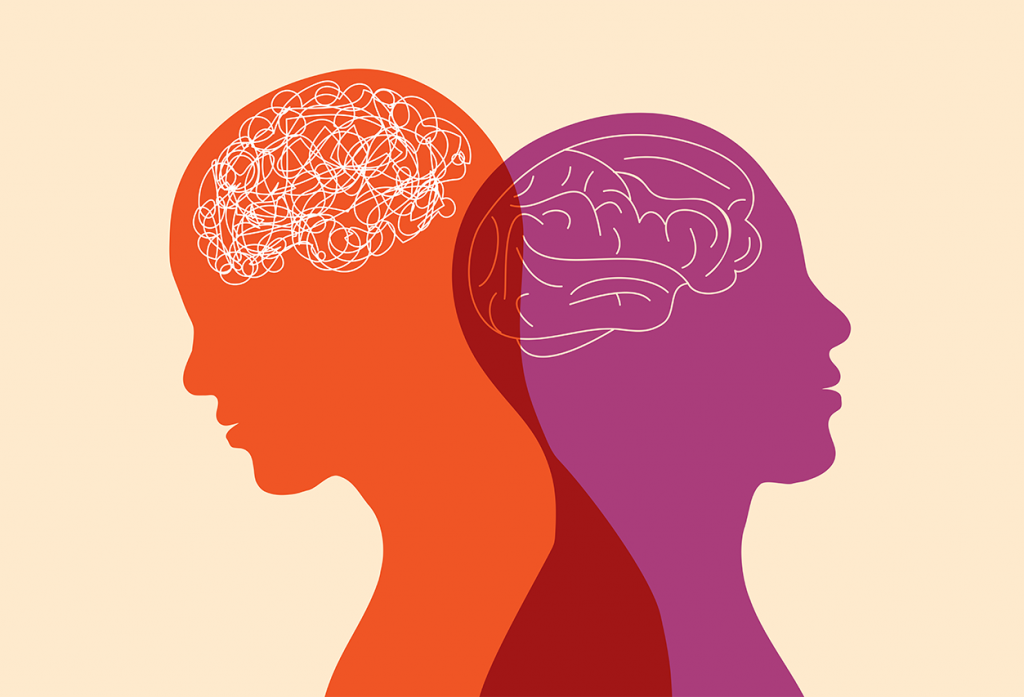What to Expect at an Inpatient Mental Health Facility for Healing
What to Expect at an Inpatient Mental Health Facility for Healing
Blog Article
Comprehensive Inpatient Mental Wellness Providers for Effective Treatment
Inpatient psychological health solutions represent a crucial element of the health care system, offering a intensive and structured atmosphere for people experiencing severe psychological distress. These services employ a multidisciplinary technique, integrating various evidence-based treatments to resolve the complex needs of patients. The effectiveness of such thorough treatment extends beyond instant stabilization; it likewise includes the shift to outpatient support, a crucial stage often ignored - mental health services. Checking out the nuances of this continuum discloses considerable effects for both individual recuperation and more comprehensive mental health and wellness end results. What elements truly influence this change, and how can we improve its efficiency?
Understanding Inpatient Mental Health And Wellness Solutions
Inpatient mental wellness solutions give essential support for people experiencing serious emotional distress that can not be handled properly in an outpatient setting. These solutions are created to supply an extensive level of care in a structured atmosphere, typically within a health center or specialized center. Clients admitted to inpatient programs commonly show acute signs, such as suicidal ideation, serious depression, or psychosis, demanding day-and-night monitoring and intervention.
The admission procedure typically entails an extensive analysis by mental health and wellness professionals, who evaluate the individual's mindset, history, and instant needs. When confessed, individuals engage in a range of restorative modalities tailored to their certain requirements, including medicine monitoring, individual therapy, and team sessions. This all natural approach aims to maintain the patient's condition, promote security, and foster coping abilities.
Inpatient psychological health services not only address prompt wellness concerns but likewise function as a bridge to recurring care. By offering a controlled atmosphere, these solutions facilitate the development of treatment plans that can be continued in outpatient setups, thus guaranteeing a continuum of treatment and boosting lasting end results for individuals with complex mental health and wellness needs.
Key Parts of Effective Therapy
Reliable therapy in inpatient mental health services comprises a number of crucial parts that foster recovery and stablizing. A detailed analysis is crucial to identify the individual's certain demands and obstacles. This assessment notifies the growth of a customized therapy plan, which functions as a roadmap for treatment.
An additional essential component is the multidisciplinary team technique. Partnership amongst psychoanalysts, psycho therapists, registered nurses, and social workers ensures that various perspectives contribute to the client's care, improving the performance of therapy. Evidence-based therapeutic modalities, such as cognitive-behavioral therapy (CBT) and dialectical behavior modification (DBT), are also integral, giving organized methods that deal with maladaptive idea patterns and behavior issues.

Lastly, a focus on aftercare preparation is vital to guarantee a seamless transition to outpatient services, lessening the threat of relapse and promoting long-term health. These cumulative components develop a reliable treatment framework within inpatient mental wellness services.
Advantages of Comprehensive Care

Thorough care in inpatient mental wellness services offers various benefits that dramatically enhance patient end results. One of the primary benefits is the all natural technique to therapy, attending to not only the emotional signs and symptoms but additionally the physical, social, and emotional demands of individuals. This detailed evaluation permits customized treatments that promote total well-being.
One pop over to these guys more advantage is the assimilation of multidisciplinary groups, which fosters cooperation among medical care professionals. This collaborative environment ensures that patients receive coordinated treatment, reducing the risk of fragmented treatment and boosting interaction among caretakers. Moreover, extensive care helps with connection of services, permitting seamless shifts from inpatient to outpatient setups, which is critical for long-term healing.

Last but not least, the structured environment of detailed inpatient care offers a safe space for clients to participate in restorative activities, helping them establish coping strategies and durability. Collectively, these benefits add to a lot more efficient treatment and improved high quality of life for people experiencing mental health and wellness crises.
Evidence-Based Therapeutic Approaches
In the world of mental health therapy, evidence-based therapeutic techniques play a vital duty in making sure that patients receive effective and clinically sustained treatments. These techniques integrate the finest available study with professional proficiency and person worths, cultivating a customized therapy experience that resolves individual needs.
Cognitive Behavioral Treatment (CBT) is one of the most widely recognized evidence-based approaches, concentrating on determining and changing negative idea patterns and actions. This structured method has actually shown effectiveness in treating conditions such as anxiousness, depression, and ptsd. Dialectical Behavior Therapy (DBT) is especially reliable for people with borderline individuality condition, check it out stressing the advancement of emotional guideline and social performance skills.
In addition, medication administration is often an important component of evidence-based treatment, as psychotropic medicines can alleviate signs and improve general performance. Collaborative care models, which involve multidisciplinary groups, even more improve the efficacy of inpatient services by ensuring comprehensive evaluations and continual tracking.
Ultimately, the integration of evidence-based healing techniques not only advertises favorable professional end results however also encourages individuals, cultivating a feeling of agency and resilience in their mental health trips.
Transitioning to Outpatient Assistance
The change from inpatient psychological health and wellness services to outpatient assistance marks a vital phase in a person's recuperation journey. This period needs careful preparation and control to make certain continuity of treatment and to mitigate the threats of relapse or situation. Effective discharge preparation must commence early in the inpatient keep, including a multidisciplinary team that includes psychoanalysts, click here for more psycho therapists, nurses, and social employees.
Trick components of an effective change include the advancement of a detailed aftercare strategy tailored to the individual's details needs. This strategy ought to lay out follow-up visits, drug management, and healing interventions, as well as identify neighborhood sources and support system that can assist in recurring recovery.
In addition, patient and household education and learning is essential during this phase. Comprehending the indicators of possible setbacks and the significance of sticking to therapy can encourage people and their support systems.
Regular follow-up and reassessment of the outpatient plan are necessary to resolve progressing obstacles. By cultivating a joint relationship in between inpatient and outpatient carriers, the likelihood of continual recovery increases, eventually improving the individual's lifestyle and minimizing the threat of readmission.

Final Thought
In recap, extensive inpatient psychological wellness services provide a crucial framework for dealing with serious emotional distress through a multidisciplinary method. By integrating evidence-based treatments, cultivating an organized environment, and promoting household participation, these solutions boost treatment effectiveness. The emphasis on stability and the advancement of dealing abilities not just help in prompt recuperation but likewise assists in a smoother change to outpatient treatment. Inevitably, such comprehensive care is vital for long-lasting mental health and wellness and wellness.
The admission procedure normally includes an extensive assessment by mental wellness specialists, that assess the individual's mental state, background, and prompt requirements.Effective therapy in inpatient psychological wellness services comprises numerous vital elements that foster recuperation and stablizing.Extensive care in inpatient psychological health and wellness services supplies many benefits that significantly boost client outcomes.The change from inpatient mental wellness solutions to outpatient support notes a vital phase in an individual's healing trip.In summary, thorough inpatient psychological health solutions provide a crucial structure for addressing extreme psychological distress via a multidisciplinary method.
Report this page